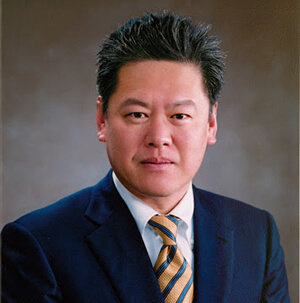Upgrade 2020: MEI LAB Speakers

Joe Alexander
Director, The Johns Hopkins University, School of Medicine
Bio Digital Twin Technology Promises Autonomous Therapy for Cardio Diseases
Imagine you’ve got heart trouble but instead of going to a doctor every few months for a checkup, your condition is constantly monitored through a series of smart sensors. Any required therapeutics are delivered through smart robotics, actuators and nanotechnology devices – no doctor visit required. That’s the vision Dr. Joe Alexander of NTT Research painted during his talk at Upgrade 2020. Dr. Alexander, who works in the NTT Research Medical and Health Informatics (MEI) lab, was describing the concept of a cardiovascular bio digital twin.

Fumiaki Ikeno
Director of Japan Reach | Stanford Center for Asian Health Research & Education
Stanford Program Produces New Medical Devices that Meet Well-defined Needs
Academics and industry alike often struggle to move ideas and concepts out of research and turn them into viable products that enjoy commercial success. In 2001, Stanford University started its Byers Center for Biodesign to focus on solving the problem by offering entrepreneurship education aimed at creating new medical devices.
Dr. Fumiaki Ikeno, a Research Associate in Cardiovascular Medicine at Stanford, explained in his Upgrade 2020 talk how the program seeks to avoid the usual roadblocks to medical product development by focusing on unmet needs in medical settings.

Kunio Kashino
Senior Distinguished Researcher | NTT Basic Research Labs
Stanford Program Produces New Medical Devices that Meet Well-defined Needs
At Upgrade 2020, Dr. Kunio Kashino from the Biomedical Informatics Research Center of NTT Basic Research Laboratories, presented groundbreaking work on technology that enables an automated system to listen to heart sounds and output a “caption” that describes the sound and whether it’s normal. If not, the system can even determine what kind of defect may be in play.

Tetsuhiko Teshima
Research Scientist,
MEI Lab | TUM, NTT Research
Toward Implantable Electrodes: A Miniaturized System for Cell Handling and Analysis
Wearable electrodes are becoming more common, to continuously monitor vital data such as heart rates, ECG and EMG waveforms for rapid diagnosis and early stage treatment of diseases. But the rigid metals and metal-plated fibers these electrodes are typically made of have some issues that researchers are hoping to address by developing smaller, more flexible electrodes that can actually be implanted inside the human body, directly on the organ to be monitored.
Dr. Tetsuhiko Teshima, a Research Scientist with the NTT Research MEI Lab, gave a talk on his research at Update 2020.

Toshihiko Nishimura
Senior Researcher | Stanford University
Why Humanized Mice Have the Potential to Shorten Drug and Vaccine Development
As has been made all too clear by the Covid-19 pandemic, the ability to rapidly develop drugs and vaccines is crucial to saving lives. In a recent talk, Dr. Toshiya Nishimura detailed his research that promises to shrink the duration of the trickiest part of the development process: testing in humans.
Dr. Nishimura is Director of the Stanford University Lab for Drug, Device Development and Regulatory Science (SLDDDRS). He explained how his team is working to repair a shortcoming in testing traditionally performed on mice by giving the mice more human-like qualities.

Yasue Mitsukura
Professor | Keio University
Building a Real-time Emotion Detector from Simple EEG Readings Plus Noise Reduction
Dr. Yasue Mitsukura has developed a system that uses simple devices to measure the emotions people feel while doing everyday things, including eating and performing different tasks. The tool could be a boon for companies looking to determine how potential customers feel about their products.
Dr. Mitsukura, a professor at Keio University in Japan, gave a presentation outlining her work at Upgrade 2020. She developed a technique called the KANSEI model, which uses simple EEG devices to measure brainwaves and determine what a subject is feeling, including stress, interest, sleepiness, “like” or pleasure, and concentration.

